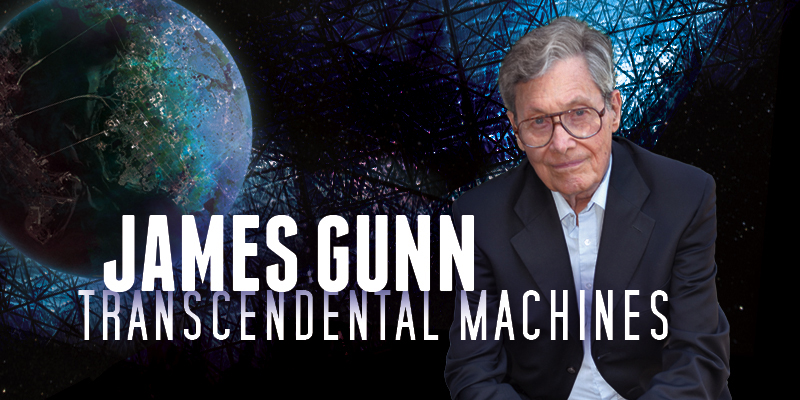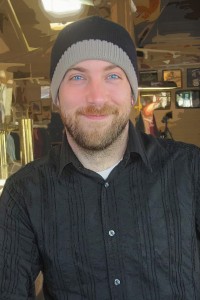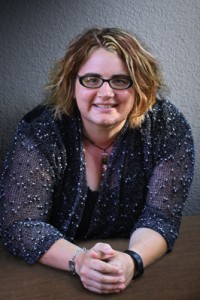James Gunn: Transcendental Machines

Grandmaster James Gunn continues to amaze with his level of productivity and commitment to science fiction as he approaches age 95.
The 2017 Campbell Conference, held at the University of Kansas June 16-18, featured a celebration of Gunn and his life in science fiction. A number of Gunn’s former students, including Pat Cadigan, Bradley Denton, Karen Hellekson, Kij Johnson, Christopher McKitterick, John Ordover, Michael R. Page, Nate Williams, Sheila Williams, and Gary K. Wolfe were on hand to offer personal appreciations and to participate in other events at the conference. Another former student, John Kessel, sent a moving video appreciation. Pamela Sargent and George Zebrowski sent along their thoughts on their decades-long friendship with Gunn as well. A contingent of writers and fans from China also joined the proceedings. Jim Gunn sat down with Gary K. Wolfe at the beginning of the conference for the following conversation. – MICHAEL R. PAGE
Excerpts from the interview
Gary K. Wolfe: “We have a challenge here, Jim. I’m talking to someone who has three major careers, at least: as a scholar and anthologist of science fiction, as a teacher of science fiction, and as a writer of science fiction. We’ve got three careers and eight decades to cover in 60 minutes. I’m feeling like Elwood Blues right now. It’s 106 miles to Chicago. We’ve got a full tank of gas, it’s dark, and we’re wearing sunglasses: let’s go.
“You’re the only person in the history of the world, I’m pretty sure, to publish a master’s thesis in a pulp magazine. For those who don’t know this, Jim’s master’s thesis was serialized in a magazine called Dynamic Science Fiction in 1953. Going back before that – how on Earth were you allowed to study SF in college in the 1940s? People still have problems doing that today.”
James Gunn: “Well, I wasn’t studying it. I came into graduate school with an advantage in that I was already a published author, which gave me a certain kind of clout in the minds of some. I was very fortunate to have a professor as my mentor in writing the thesis. I told him I wanted to write on SF, and he said fine. That was Professor John Hankins, who later went on to become the chair of the English department at the University of Maine. One of his other students was Stephen King. He graduated to the big time, there. But there wasn’t any literature on science fiction to be studied. The only thing we had after WWII was a series of great anthologies which plumbed the magazines, particularly Adventures in Time and Space by Raymond J. Healy & J. Francis McComas, and Groff Conklin’s The Best of Science Fiction. I was drawing on those primarily, as well as my own experience, but I had another professor that I talked to also. When he asked me what I was going to do my thesis about, I told him science fiction, and he said, ‘I view science fiction as at best sub-literary.’ I sort of proved him right by getting the thesis published in a pulp magazine. Fred Pohl was my agent then, and he submitted my book to other publishers to consider, and none of them were interested in it. There had been a previous book published in 1947, J.O. Bailey’s Pilgrims Through Space and Time, which did cover part of the literature of SF, but he was primarily a Victorian scholar who specialized in 19th century fiction by Jules Verne and others. The book was his dissertation, written in 1933, and he had added a sketchy sort of survey of what he understood to be magazine fiction of the 20th century. I really felt it was inadequate as a survey of contemporary SF. My book never got published as a book. Now, thanks to Mike Page, McFarland and Company will publish it in 2018.”
GKW: “That might be another record – 70 years between getting a master’s thesis written and published. You were another of the generation who grew up with Astounding. Those anthologies you mentioned heavily mined the John W. Campbell Astounding.”
JG: “The Best of Science Fiction went back into the 19th century, but Adventures in Time and Space primarily plumbed Astounding during the Golden Years, which was a great revelation to some people. It remained in print for decades afterwards.”
GKW: “My former mentor and friend Charles N. Brown used to talk about science fiction as a conversation. When you were beginning your career, you could pretty much read all science fiction.”
JG: “That’s a way SF has changed in the last 30 or 40 years. The field has grown so big and so wide that nobody can really encompass it all. Instead there are lots of subcategories of fans who are interested in parts of printed SF, but there are even larger fan groups interested in television and films and comic books and games and God knows what else.”
GKW: “Have we lost something, then? When you were writing your early stories, the stories collected in Station in Space, for example, did you have a sense that you were in a conversation with all those writers that came before?”
JG: “I didn’t know them. I had the experience of meeting my first SF writers when I was working for Western Printing and Lithographic Company in Racine WI, editing Dell Books. I was sort of in charge of the minimal SF line, and I talked the editor-in-chief into sending me to Chicago for the 1952 World Science Fiction Convention, my first of any kind. There was kind of a revelation in meeting all the people I had read and admired and, in a sense, was walking in the footsteps of. It was a transformative experience because I had been isolated here in Kansas City. I hadn’t seen another SF writer or even maybe a fan, and here they’re all gathered together, all 800 of them, including John Campbell, Tony Boucher, and Evelyn Gold, Horace Gold’s wife. Horace didn’t leave his apartment, so he sent Evelyn. Raymond Palmer was there, Willy Ley, and Hugo Gernsback, who was the Guest of Honor. Standing in line to register, I actually looked back behind me and there I saw a face I recognized. I said, ‘You’re Jack Williamson,’ and he admitted he was, and that started a longtime friendship that led to a collaboration, which produced my second novel Star Bridge. Much later I discovered it had become a classic, although neither of us thought about that at the time – it didn’t get great reviews until ten years after it was published, when one of its reprints got reviewed by Gerald Jonas in the New York Times. I cherish one of the comments made in that review. It said, ‘This reads more like a collaboration between Heinlein and Asimov.’ When I started writing back in 1948, I really thought that SF had been going on forever, but as I look back now, I realize John Campbell had just taken over Astounding ten years before and Isaac Asimov started writing shortly after that. He and Heinlein had 10 years of experience behind them and the Golden Age was still relatively new, but I didn’t realize it at the time. Instead I felt like an innovator, though I knew I was walking in the footsteps of greater writers.”
GKW: “I’m not going to say greater men, but is it true you heard H.G. Wells speak at one point?”
JG: “When Wells came to Kansas City, on a country-wide tour, he spoke at Municipal Auditorium in Kansas City. My uncle John took my brother and me – I was 14 years old, and my brother was 16. We got to hear Wells talk in the auditorium there. I was surprised. He was a short, dumpy man, and spoke in a high, squeaky voice. I don’t remember what he said, but I’m sure it was very important. At the end of the talk he came down off the platform, and my brother and I pushed our way to the front and I reached out my hand, and he brushed past me without a look. But I had the feeling that some spark passed between us. He was SF. He was the person I went to the public library to check out because I didn’t get enough SF in the magazines being published at the time, and I searched through the library to find things that would satisfy my hunger. As a consequence, when I wrote my memoir, I called it Star-Begotten, because Star Begotten was the title of a late H.G. Wells novel. It’s kind of an atypical novel, in the sense that nothing really happens, except this one character has the feeling humanity is being transformed biologically by Martians, and he keeps looking for evidence of the conspiracy. He finally discovers at the end that he himself is star-begotten, and it’s not a bad thing for humanity to be more intelligent, and kind, and generous, and thoughtful. I felt it was a good way to describe how SF affects a lot of people, which is what the Campbell Conference tries to do. It’s a way in which we can change the world. Central in all of the science fiction that we read, certainly in Wells’s own philosophical comments, we envision massive changes in humanity that would make us the kind of individuals and society we hope to be. Publicly, Wells advocated an open conspiracy of people of education and good will to help remake the world.”
GKW: “You realize you could say you shook his hand and chatted with him and nobody could contradict you?”
JG: “As a matter of fact, John Kessel did say that I touched his hand. But I didn’t. I have to be honest. Life is filled with incomplete transactions.”
Interview conducted at the 2017 Campbell Conference, courtesy of Michael R. Page and recorded by Matt Jacobson.
Interview design by Francesca Myman. Photo by Beth Gwinn. Read the complete interview in the March 2018 issue of Locus.








Terrific interview! Gunn comes across as just the sort of person I knew he had to be: thoughtful, intelligent, unpretentious, honest, and a fine spokesman for science fiction. And, yes, Jim, I knew immediately that “Star Bridge” was an sf classic the first time I read it at the age of 10. It’s one of the brightest memories of my Golden Age. Why the fan base didn’t know this right away I’ll never understand. I still consider it possibly the best combination of the pulp tradition and modernism ever published in the field. It is truly a marvelous sense-of-wonder adventure story. It helped make a fan of me.